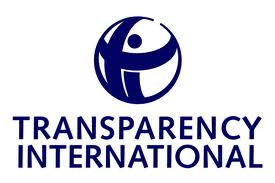 Transparency International welcomes the many commitments made today by the governments at the Anti-Corruption Summit as a positive step forward in the fight against corruption and calls for concrete actions to start immediately.
Transparency International welcomes the many commitments made today by the governments at the Anti-Corruption Summit as a positive step forward in the fight against corruption and calls for concrete actions to start immediately.
“This is a good day for the fight against corruption, but there is more to do. Well done to the countries that have shown leadership; but it is hard to credit those who still fail to make sufficient progress. We need to build on trust and a common agenda between governments, business and civil society so that we deliver more than words. We need actions to create change,” said Jose Ugaz, Chair of Transparency International.
Major gains include 12 additional countries signing up to public registries containing information on the real people who own and control companies or committing to explore doing so. An international centre to share information between law enforcement agencies tracking corrupt money and an international forum to speed up the return of stolen assets are welcome initiatives to get the money back into the countries it was stolen from.
Transparency International called for ambitious and concrete commitments from leaders before the Summit. We have seen that some have risen to the challenge whilst others seem content with the status quo.
While 11 new jurisdictions have agreed to share information on beneficial ownership behind closed doors, key countries are missing, including major economies such as the US.
José Ugaz, Chair of Transparency International, said:
“Exposing corruption is not enough. We need to stop impunity for corruption. The corrupt need to face the consequences of their crimes.
“We called on countries to be ambitious and concrete in their proposals to prevent and punish corruption and protect those who stand up against it. Some countries have risen to the challenge and others have not.
“As of today, six more countries will publish public registries of the real owners of companies, with another six committing to explore doing so. This would make it harder to hide, transfer and benefit from corrupt money.
“We also welcome the fact that some governments will tackle secrecy in government activities by making information on procurement and contracting open by default.
“The UK has shown great leadership in gathering together more than 40 countries and the heads of key institutions. However it has not managed to get its own overseas territories to sign up to the same standards of transparency on company ownership that the Prime Minister has rightly so championed.
“The Summit has galvanised global attention on corruption and how to fight it. The real issue of how corruption works — secrecy — is being tackled. More governments have committed to ensuring that information is made public making it harder for the corrupt to hide their illicit wealth. But we will need to see the laws in place and enacted before we can claim any victories.”
KEY POINTS:
Transparency: The Anti-Corruption Summit was the first of its kind to bring leaders together to tackle corruption. Significantly, the Summit was filmed in its entirety and was inclusive of governments, business and civil society. This is a standard that all Summits should try to adhere to.
Sport: Sports bodies have woken up to the need for reform and realised corruption can no longer be swept under the carpet. The initiative to launch an International Sport Integrity Partnership in 2017 must include all sports stakeholders from sponsors to athletes to international bodies to independent civil society groups.
International Centre for Law Enforcement collaboration: Corruption is a cross border crime that requires a joint-up response. This centre has potential to pool expertise, resources and knowledge to collaborate on investigations and punish perpetrators. The Centre must be open to receiving information submitted by whistleblowers and civil society groups in a safe and secure way.
Beneficial ownership transparency for real estate and public contracts: We strongly welcome the UK initiative to require full transparency of the companies who currently own or will purchase property in the UK, helping to close the door to corrupt cash. We welcome the fact that other countries also intend to shore up their own property markets so they don’t open the door to corrupt cash from overseas.
